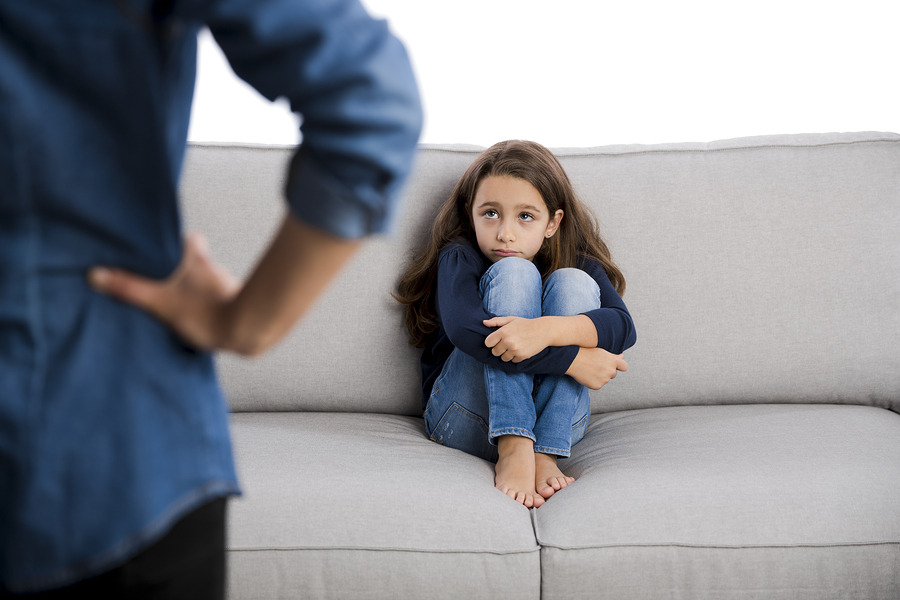 In the process of writing a memoir, I have been reflecting on the families of two sisters. The first, Joyce, ruled with the iron hand of legalism. Her five kids obeyed a lengthy set of strict rules—“Because I say so, that’s why!” Now grown, they tell me they acquiesced mainly out of fear of punishment.
In the process of writing a memoir, I have been reflecting on the families of two sisters. The first, Joyce, ruled with the iron hand of legalism. Her five kids obeyed a lengthy set of strict rules—“Because I say so, that’s why!” Now grown, they tell me they acquiesced mainly out of fear of punishment.
Joyce’s family devotions often centered on the Old Testament: Honor your parents, Fear the Lord, Stop grumbling. The word grace rarely came up. When her children got married, Joyce told them, “If your marriage fails, don’t bother coming back here. You made a vow to God, so keep it.”
All of Joyce’s children have struggled with self-image problems. They admit it has taken many years for them to think of God as loving, and even now that concept seems more intellectual than experiential. Joyce and her husband have softened into grandparents, but affection still does not come easily to anyone in the family.
Yet here is a striking fact: defying an overwhelming national trend, all five of those children remain married to their original partners. They’ve chosen jobs in the helping professions. All but one are raising their own children in the faith. At some level, strictness and legalism in this family produced results.
In contrast to Joyce, her sister Annette determined to break out of the rigidity of their own upbringing. She vowed not to punish her children, rather to love them, comfort them, and calmly explain when they did something wrong. Her family devotions skipped right past the Old Testament and focused on Jesus’ astonishing parables of grace and forgiveness.
Annette especially loved the story of the Prodigal Son. “We are those parents,” she would tell her children. “No matter what you do, no matter what happens, we’ll be here waiting to welcome you back.”

Unfortunately, Annette and her husband would have many opportunities to role-play the parents of the prodigal. One daughter contracted AIDS through sexual promiscuity. Another is on her fourth marriage. A son alternates between prison and a drug rehab center.
Annette has kept her promise, though, always welcoming her children home. She looks after the grandchildren, posts bail, covers mortgage payments—whatever it takes to live out her commitment of long-suffering love. I marvel at her spirit of grace and acceptance. “What do you expect?” she shrugs. “They’re my children. You don’t stop loving your own children.”
![]()
 I grew up in a home and church more like Joyce’s. After a period of rejection and rebellion, I discovered a God of love and forgiveness. (More accurately, God found me). I ended up as a Christian writer, piping the tune of grace. My brother, raised in the same environment, tossed faith aside. He now attends what he calls an “atheist church”—a Sunday gathering of humanists who spend much time talking about and opposing a God they don’t believe in—and stocks his bookshelf with works by noted atheists such as Christopher Hitchens and Richard Dawkins.
I grew up in a home and church more like Joyce’s. After a period of rejection and rebellion, I discovered a God of love and forgiveness. (More accurately, God found me). I ended up as a Christian writer, piping the tune of grace. My brother, raised in the same environment, tossed faith aside. He now attends what he calls an “atheist church”—a Sunday gathering of humanists who spend much time talking about and opposing a God they don’t believe in—and stocks his bookshelf with works by noted atheists such as Christopher Hitchens and Richard Dawkins.
“No one can comprehend what goes on under the sun,” concluded the Teacher of Ecclesiastes. “Despite all their efforts to search it out, no one can discover its meaning. Even if the wise claim they know, they cannot really comprehend it.”
A friend of mine, a wise counselor, says that human behavior can be explained by three things: nature (or heredity), nurture (including family upbringing), and free will. Which, he quickly admits, explains very little, for those ingredients combine in different ways in all of us. Loving, supportive families sometimes produce wounded and rebellious children; harsh or dysfunctional families sometimes produce the opposite. In between lies mystery—and God’s grace.
(I welcome hearing your stories of how family did, or didn’t, provide a nurturing balance in cultivating the life of faith.)



Leave a Comment